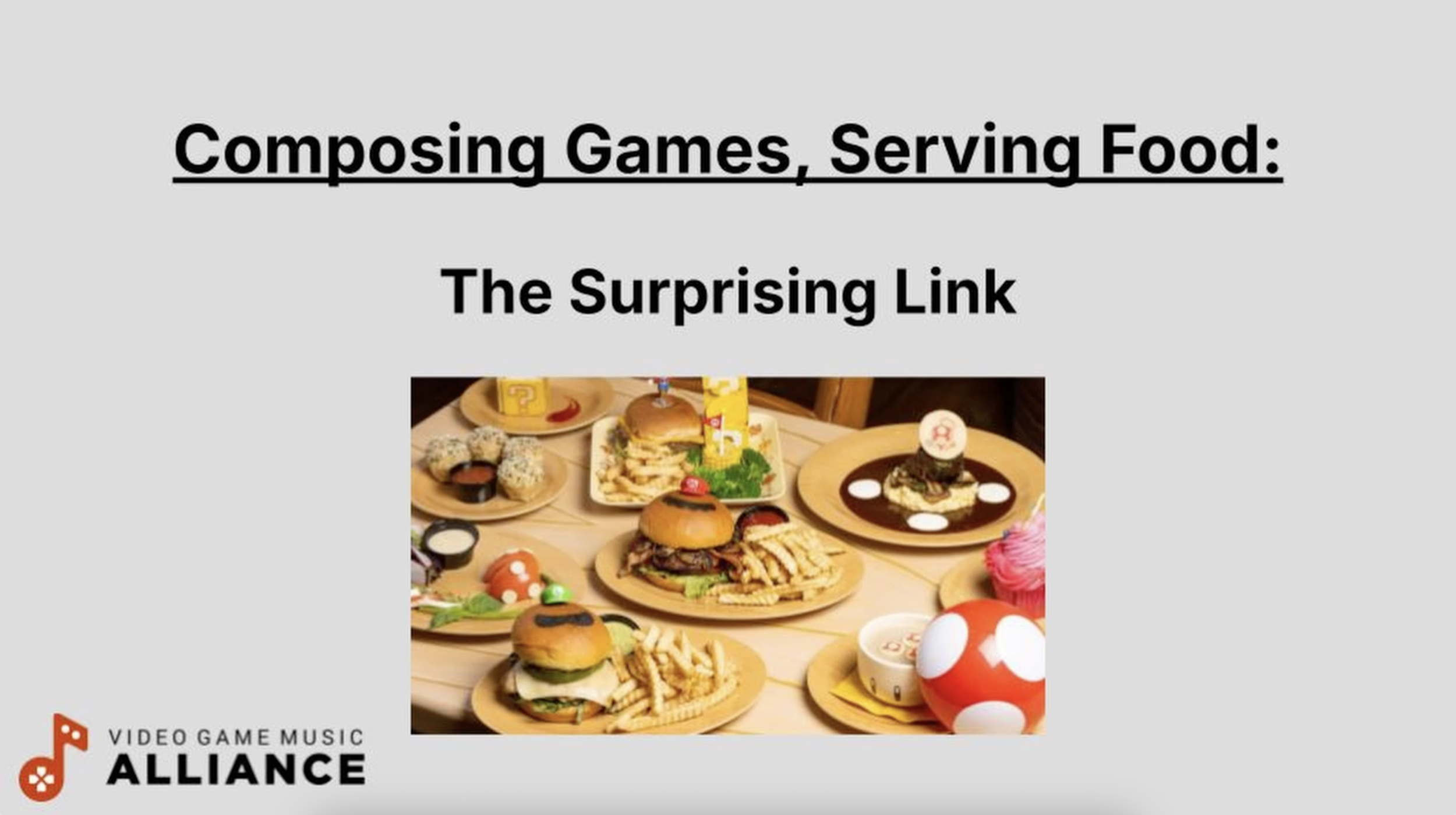🎮🎼 Composing Games, Serving Tables: The Surprising Link
🎤 Intro
👋 Hi, I’m Jordan Metzger, one of the coaches here with Video Game Music Alliance. Like you, I’m constantly working to grow as a composer for games.
This talk is all about the business pillar of our craft. It’s a little more on the theoretical side, so I’ll keep it short and sweet — but I hope to give you something to chew on, plus a framework to help you work better with the people paying us for our music: clients.
For me, I learned this lesson years before I ever scored a pixel or orchestrated a boss battle. I spent 15 years in food service.
Now, you might not think waiting tables has much to do with writing game music… but I learned more about client relationships in those years than I ever expected. And I believe those same principles are what keep my clients coming back today.
🧠 To make this fun and memorable, we’re going to use a simple framework: three common RPG/video game archetypes. I was inspired by a game I’m playing right now — Capcom’s hidden gem Kunitsu-Gami: Path of the Goddess — which has a traditional Japanese setting and a heavy emphasis on party class customization. But this mechanic is as old as video games.
You’ve probably seen these before:
● Warrior/Paladin – The disciplined fighter, loyal to the cause
● Rogue/Assassin – The stealthy, precise operator
● Bard/Support – The charisma-driven helper who makes the quest enjoyable
Here’s how these three archetypes can completely change the way you approach client relationships in game audio.
🗡️ 1. Warrior / Paladin – Serve the Vision
The Paladin (like the Samurai) serves a higher cause or vision. They offer value through selfless protection, steadfast presence, and high-quality execution. Humble yet strong, they add stability and trust to a team.
Just like in food service, “You are a servant first.” Your job is to meet the client’s needs. You’re not the hero — they are.
We’re brought on to solve a problem, to fill a gap. Your job is to add value to their vision, not showcase only your own preferences. And the first way you add value is through quality work.
Clients don’t just need “cool music.” They need music that is:
🎧 Cleanly mixed
🎯 Emotionally on point
🧰 Flexible for implementation
🌍 Tuned to the world they’re building
A sloppy track, even if creative, doesn’t serve.
A polished, focused piece, even if simple, does.
✅ Ask yourself:
● Is my work telling their story, not just mine?
● Am I making their project stronger, clearer, more immersive?
Serving like a Paladin means showing up with excellence, humility, and discipline. That’s what builds trust.
🥷 2. Rogue – Anticipate the Need
The Rogue mirrors the Ninja’s stealth, awareness, and precision. They stay one step ahead, anticipate problems, and act before things become issues.
When I waited tables, I worked to never be the focus. I refilled drinks before anyone noticed they were low. Cleared plates just as someone finished. If someone had to ask me for something, I’d already missed the mark.
That’s Rogue service — and in game music, it looks like:
🛠️ Updating a mix before being asked
🗂️ Naming files correctly without reminders
👂 Anticipating future changes based on feedback cues
📦 Sending alternative versions when you see potential issues
And always: doing it on time. Initiative means nothing if it’s late.
✅ Ask yourself:
● Where can I act without being asked?
● Am I delivering things promptly, cleanly, and confidently?
When you do this, you shift from “vendor” to “trusted partner.” You make their life easier — and they remember it.
🎎 3. Bard – Make the Quest Pleasant
The Bard charms, uplifts, and makes the party’s experience enjoyable. They use charisma, empathy, and creativity to make encounters memorable.
When I waited tables, I almost always got the best tips of the night — because warmth and a smile go a long way.
We can’t just be artists. We need to be masters of hospitality. Our clients should feel seen, respected, and cared for. Because in creative work, people remember how you made them feel more than they remember the deliverable.
Clients come back when:
🤝 You’re easy to talk to
💬 You respond with kindness and warmth
🙏 You thank them for their trust and time
🔁 Revisions feel like progress, not punishment
✅ Ask yourself:
● Am I a joy to work with?
● Am I thanking them more than they thank me?
A positive and graceful attitude can turn a good composer into the go-to composer.
🎯 Conclusion: Warrior. Rogue. Bard.
Here’s my checklist for every project:
🗡️ Paladin – Serve the vision with humility and quality
🥷 Rogue – Anticipate needs and act quickly
🎎 Bard – Make the collaboration pleasant and respectful
We all know these things instinctively — but having these archetypes gives us something clear to aim for.
🎵 Great music gets you in the door.
👨🍳 Great service keeps you in the room.
Serve like a Paladin.
Act like a Rogue.
Smile like a Bard.
Once again, I’m Jordan with Video Game Music Alliance — it’s been a pleasure to serve you in this talk!

